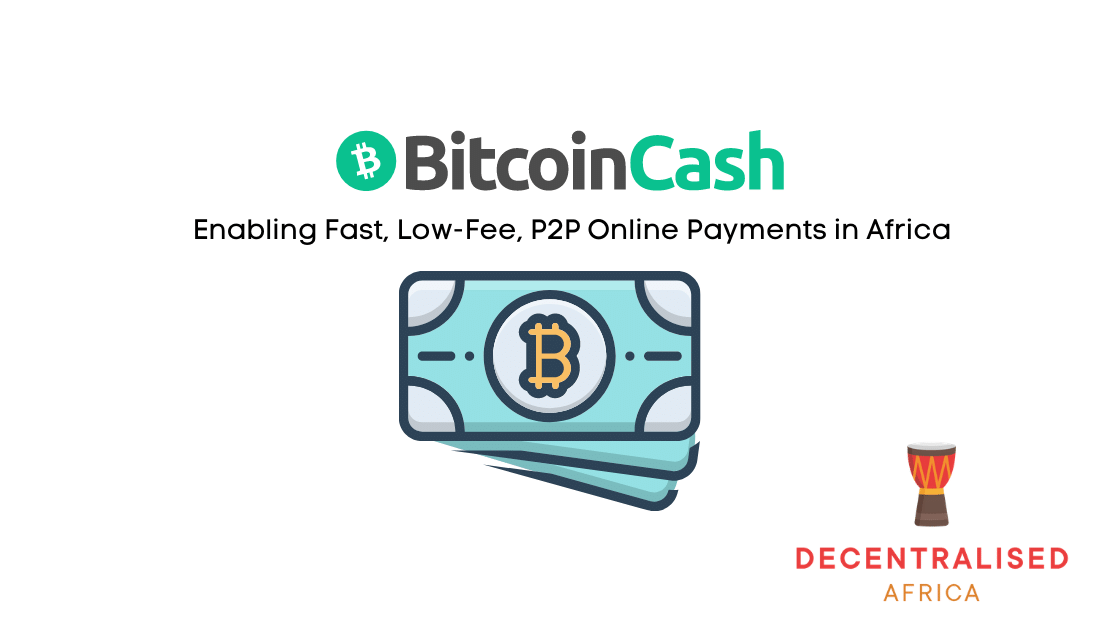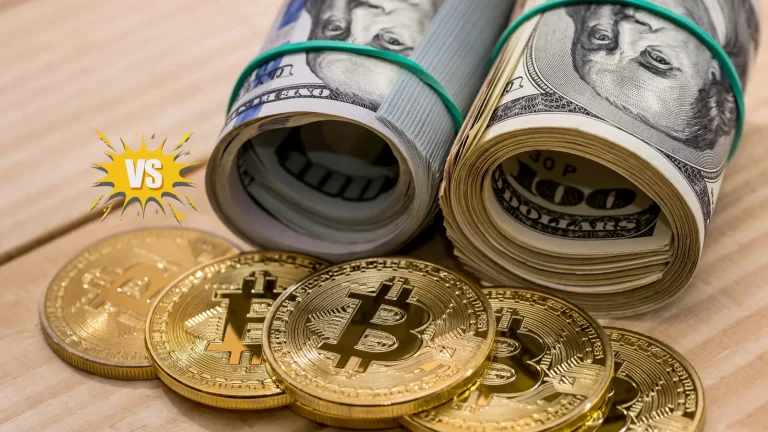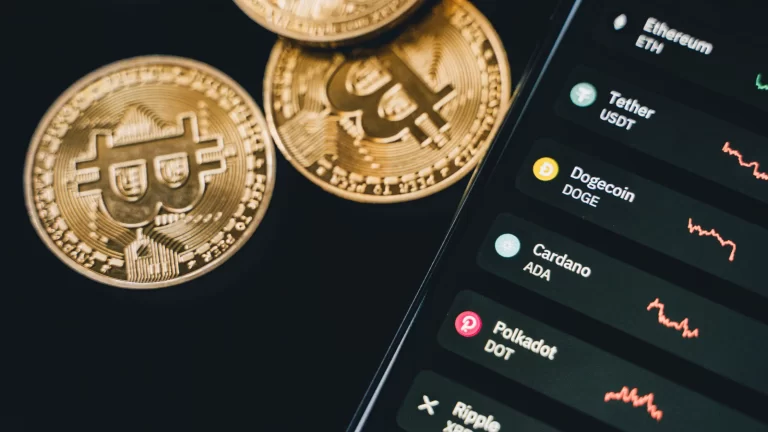Why Bitcoin Cash is Important for the Crypto Ecosystem in Africa

Bitcoin Cash Adoption in Africa
Africa is uniquely placed to trade with growing markets in the East, established markets in the West, and domestic markets on the continent. With its youthful population exceeding 1 billion, and projected to more than double by 2050, most Africans are optimistic and eager to play a key role in the future of global business.
National economies in sub-Saharan Africa are mostly characterized by small businesses that provide the bulk of employment opportunities. However, these businesses don’t have the capacity to generate the number of jobs needed to provide livelihoods for the growing numbers of young people entering the workforce. What is available is the huge potential for small businesses to upscale and grow, to create meaningful employment in more productive, higher-value-adding roles, and to benefit from economies of scale that will enable their products to compete on international markets and Bitcoin Cash can be part of the solution.
Africa’s extremely fast uptake of mobile phones and transformation in communications brings with it ‘free’ technical education, more accurate market information and credible market analysis. As a result, African entrepreneurs are beginning to use the internet to leverage crowdfunding, as well as making use of decentralized currencies such as Bitcoin Cash to lower costs.
Africa doesn’t have a common currency like Europe does. As a result, trading among the countries and foreign exchange can be cumbersome. Faster transactions and less exposure to foreign currency risk should increase the pace of trade and hopefully result in economic development. A peer-to-peer electronic cash system such as the one Bitcoin Cash is working towards would present a viable option.
Bitcoin Cash – Africa’s hope for a truly Peer-to-peer Electronic Cash System?
Africa’s value storage problems seem insignificant in light of the value exchange challenges confronting economies on the continent. Indeed African economic structures generally suffer from systemic inflation and it’s not uncommon for countries to report double and sometimes triple-digit inflation rates.
Zimbabwe, the most significant case of hyperinflation was worse than the ordeal Germany had experienced in the pre-Bretton Woods era, during the fall of 1922 when those who kept their savings in banks or the elderly who were living on pensions or disability checks found themselves virtually bankrupt. It didn’t matter how high workers’ wages rose, they simply couldn’t keep up with soaring prices.
It’s important to highlight these facts because the store of value argument – as attractive as it is – particularly to those who reside in the wealthier nations of the world, does little for those in the developing world who have little to no personal wealth to protect.
If Bitcoin ends up nothing more than just another vehicle for the well-resourced risk takers or those with excess capital to protect their wealth then that wouldn’t be in the best interest of the average African.
There are two billion people in the world without access to basic financial services and 30% live within Sub-Saharan Africa. It is estimated that more than half of the population in Sub-Saharan Africa is unbanked and high levels of financial exclusion are commonplace across the continent. For this reason, at Decentralised Africa, we are pro-progress and anti-exclusion.
A Solution To The Remittance Problem
People in Africa need a digital currency they can transact with on a daily basis with as little transaction costs as possible. It costs ~10% on average for Africans to send money back to their families which is the highest in the world. When you consider that remittance payments are said to make up over 20% of national GDP in some African countries, the scale of the problem starts to become more apparent.
There’s no doubt that remittance companies are siphoning off massive amounts of wealth which could be used for much greater good and further develop local African communities. Cross-border remittances using cryptocurrencies such as Bitcoin Cash are a lot cheaper. A $100 remittance payment to Africa could incur a fee of up to ~$10, whereas it would cost on average $0.0026 USD using Bitcoin Cash.
P2P transactions using Bitcoin Cash can open up opportunities to people in Africa by enabling anyone with a smartphone to receive payments from anywhere in the world. This means that peer-to-peer cryptocurrency allows the unbanked to accept cross-border payments for goods and services and actively participate in the digital economy which is around US$11.5 trillion globally, equivalent to 15.5 percent of global GDP. By 2025, the digital economy will be US $23 trillion globally, or 24.3% of global GDP, according to some research.
Empowering Digital Businesses
Bitcoin Cash can open up new channels for economic growth to African entrepreneurs and enable them to scale their online businesses. This empowerment could have a significant impact on African economies by allowing businesses to capture global value and create new domestic employment opportunities.
Bitcoin Cash could be an essential component in improving the financial stability of African societies and individuals. Decentralization enables people to engage in trade without the meddling of corrupt opportunistic governments. Even people who have never received a valid ID can now get instant access to a global type of trustless environment that is ID agnostic.
Such a transfer of economic power from state to individual could help create a bottom-up economy which serves the masses instead of a small political elite.
Making the Case for Bitcoin Cash Adoption in Africa
An economy is basically a total sum of human interactions due to the fact that humans tend to vote with their purchases. As people, we decide the structure of our society when we spend our money. The idea that Bitcoin is deflationary in nature has resulted in a hodl culture, that is, people irrationally stockpiling large amounts of bitcoins as a cash balance. However, money is a commodity subject to supply and demand. What makes money a unique commodity is in its use as an exchange medium. Hodling Bitcoin has nothing to do with facilitating faster, easier or low-cost exchange – a use case that is most important to people in the developing world who seek financial inclusion.
The true value of Bitcoin Cash is in its potential for wider use. Spend and replace demonstrates use and also allows people to capture and save in BCH adding to the value of the system. The misalignment when it comes to the BTC-hodl mentality is that it doesn’t encourage use.
What will drive real value globally and make Bitcoin inclusive is its use as cash which you cannot currently do with Bitcoin BTC because of the expensive transaction fees and the limited number of transactions that can be processed on-chain at any given time. BTC seems ideal for use in speculation or “use” as a digital gold but not use as cash.
Bitcoin Cash has the potential to grow as more people start to understand that they can use it anywhere, to move their savings and even hold their surplus funds, and spend and replace or slowly save and use instead of outright hodling.
Bitcoin as digital cash is so important to the African continent as a global money that people can earn and exchange over the internet and allow those even in remote areas to earn for the value they are able to create and contribute. In a global world, there are many opportunities that will open to those in the remotest of places and Bitcoin (BCH) could help deliver this.
An exchange in Bitcoin Cash can be made from one party to another directly with no intermediary. As an economic system based on market forces BCH can become global cash. Be it e-commerce, remittance, wealth preservation – BCH could provide a much larger avenue for those people who are financially excluded and marginalised. Another sector where cryptocurrencies are revolutionizing African economies is through peer to peer finance and platforms such as Local.Bitcoin.com will be instrumental in providing the infrastructure that enables real transformation.
Bitcoin Cash offers a reliable way for Africans to move large amounts of value around safely. People don’t have to worry about losing money when converting to dollars, then losing more when they convert those dollars to some other local currencies. They can simply trade in BCH and use the market rate.
Africans are not new to the idea of mobile phone-based money transfer services, payments and micro-financing services for everyday transactions. M-Pesa in Kenya and Ecocash in Zimbabwe are good examples. However, many intra-african trades within the SME sector are still done in cash, which tends to be quite risky but businesses are often forced to operate with cash, because they don’t have access to bank accounts or cannot afford the fees associated with maintaining such banking facilities. Bitcoin Cash can solve this issue.
BCH provides faster payment execution and lower costs, and if we assume that the majority of African businesses operate with low margins and suffer from lack of operating capital, lower transaction costs and faster settlements is literally a matter of survival.
Decentralised Africa – Bitcoin Cash Flipstarter Campaign
We have made our intent to support the Bitcoin Cash community public because we believe in real progress, financial inclusion & independence. We fight for emancipation through innovation and expect to play our part and be committed to the vision of achieving a financial system powered by a peer-to-peer electronic cash system.
We believe our goals are aligned with what Bitcoin Cash is enabling and hope the community continues to endeavor to achieve greater adoption to create maximum impact and change the most number of lives. With so many people working together globally, we are honoured by the encouragement and warm welcome we received from the community.
What drives demand for finance is vision, essentially meaning people with ideas – and the requisite skills – who want to build a better future for all and advance global civilisation. Furthermore, what helps people secure the backing of others is knowledge: the ability to solve problems and demonstrate competence. There is a wealth of information about developments within the community and we open our platform to the community for ecosystem news, developments, press releases, important updates and news releases. Please forward to press@backend.decentralised.news
Feel free to check out our Flipstarter campaign https://backend.decentralised.news/bitcoincash





